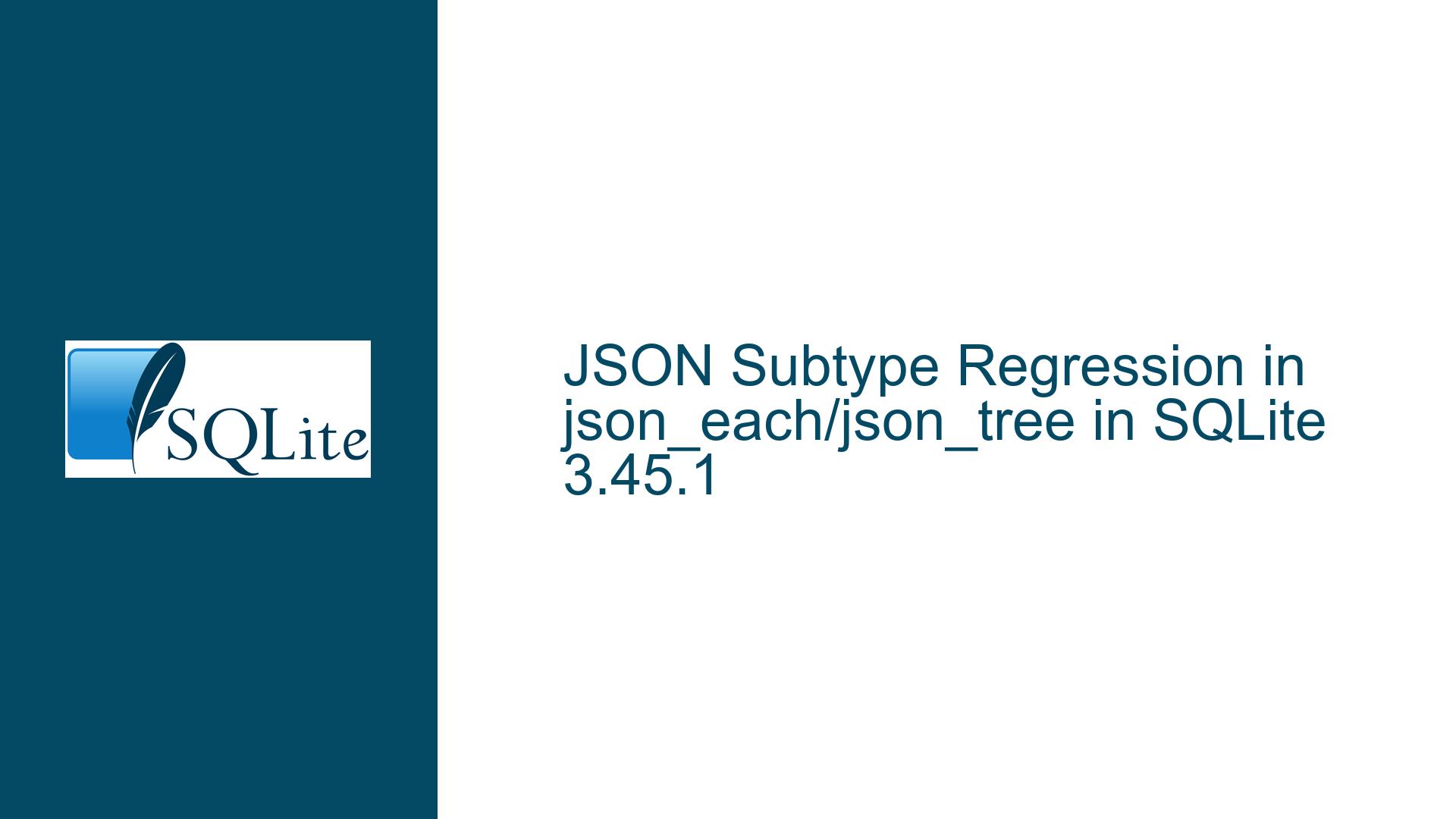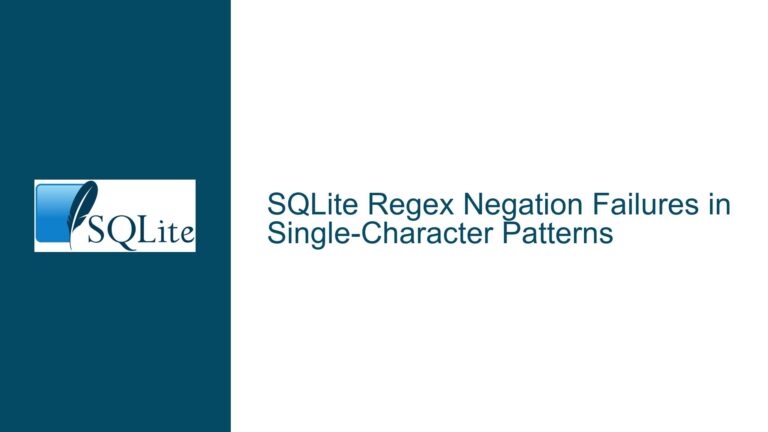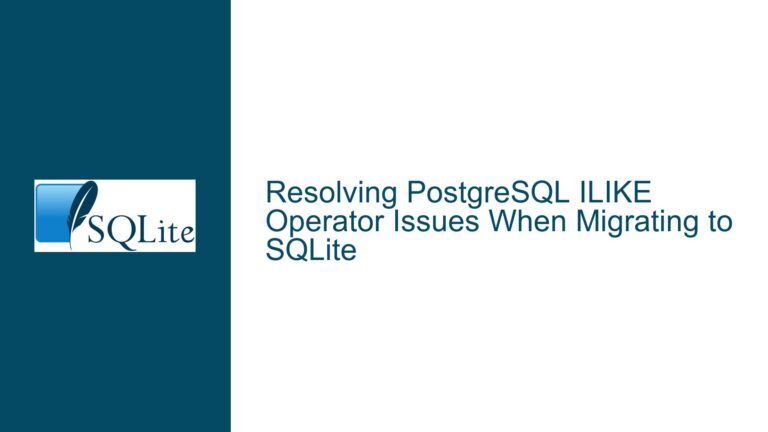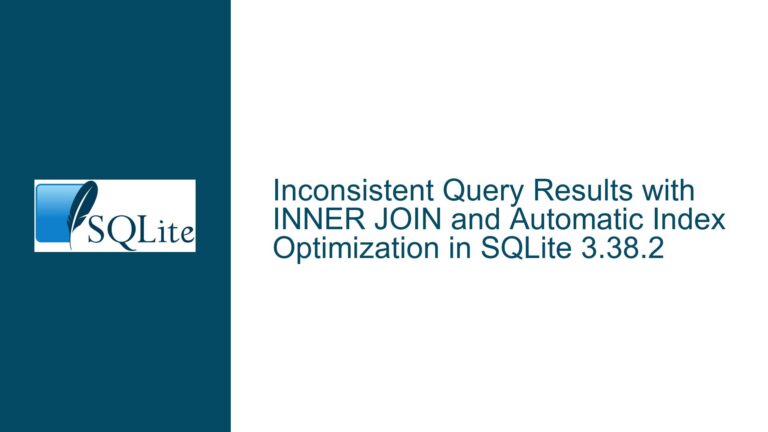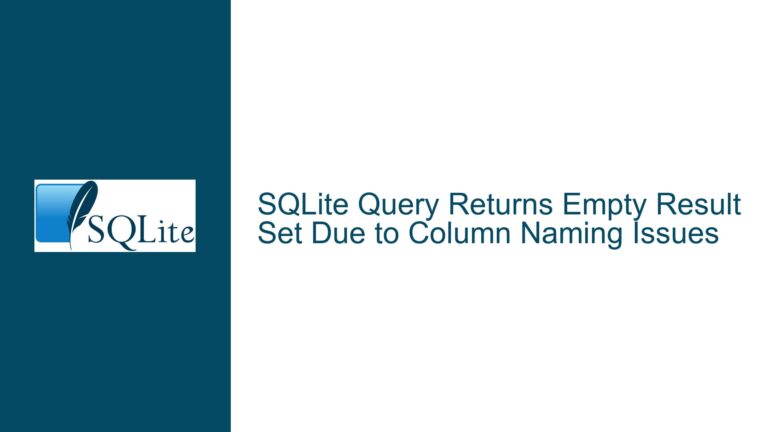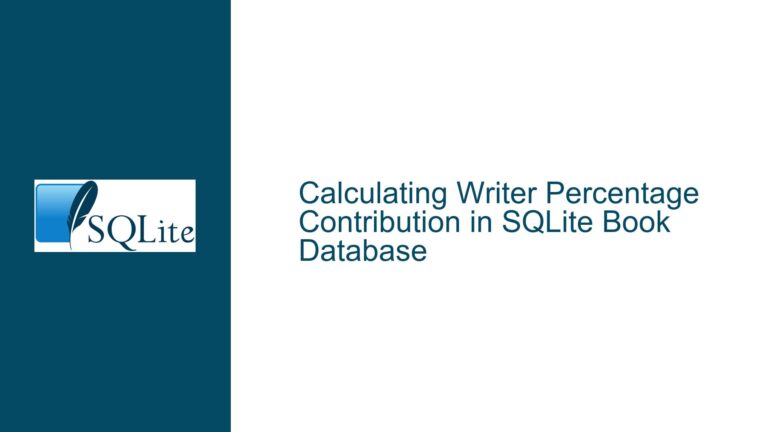JSON Subtype Regression in json_each/json_tree in SQLite 3.45.1
JSON Subtype Behavior in json_each/json_tree Functions
The issue revolves around the behavior of the json_each() and json_tree() table functions in SQLite, specifically regarding the application of the JSON subtype to the value column. In SQLite, the subtype() function is used to determine the subtype of a value, which is particularly relevant when dealing with JSON objects and arrays. The JSON subtype flag, represented by the value 74, is used to indicate that a value is a JSON object or array. This flag is crucial for distinguishing between plain text and JSON data within SQLite.
In earlier versions of SQLite, such as 3.41.0, the json_tree() function correctly applied the JSON subtype flag to the value column when the value was a JSON object or array. For example, when querying json_tree('[1,2,3]'), the subtype(value) column would return 74 for the JSON array row and 0 for the numerical rows. This behavior is consistent with the expectation that JSON objects and arrays should be flagged with the JSON subtype.
However, in SQLite version 3.45.1, this behavior appears to have regressed. The subtype(value) column now returns 0 for the JSON array row, indicating that the JSON subtype flag is no longer being applied. This change is unexpected and could lead to issues in applications that rely on the JSON subtype flag to distinguish between JSON and non-JSON data.
The id column values also differ between the two versions, but this is documented behavior and not a cause for concern. The id column is an internal housekeeping number that can vary between releases, and its computation is not guaranteed to remain consistent. The focus of this issue is on the JSON subtype flag, which should remain consistent across versions.
Potential Causes of the JSON Subtype Regression
The regression in the JSON subtype behavior in SQLite 3.45.1 could be attributed to several factors, including changes in the internal handling of JSON data, modifications to the json_each() and json_tree() functions, or updates to the subtype flag mechanism itself. One possible cause is the significant changes made to JSON functions and subtype flags in SQLite 3.45. These changes might have inadvertently affected the way the JSON subtype flag is applied to the value column in the json_each() and json_tree() functions.
Another potential cause could be related to the internal representation of JSON objects and arrays in SQLite. In SQLite, JSON data is stored as text, and the JSON subtype flag is used to indicate that the text should be interpreted as JSON. If the mechanism for applying this subtype flag has been altered, it could explain why the subtype(value) column no longer returns 74 for JSON objects and arrays.
Additionally, the regression could be the result of a bug introduced during the development of SQLite 3.45.1. Given the complexity of the changes made to JSON functions and subtype flags, it is possible that a bug slipped through the testing process, leading to the observed behavior. This would not be uncommon in software development, especially when dealing with complex features like JSON support.
Resolving the JSON Subtype Regression in SQLite 3.45.1
To address the JSON subtype regression in SQLite 3.45.1, the first step is to verify whether the issue has already been fixed. According to the discussion, a fix has been implemented in check-in 1c33c5db2e05019d. This fix should restore the expected behavior of the json_each() and json_tree() functions, ensuring that the JSON subtype flag is correctly applied to the value column.
If the fix has not been applied to your version of SQLite, you can update to a newer version that includes the fix. SQLite is regularly updated, and new releases often include bug fixes and improvements. Updating to the latest version should resolve the issue and restore the expected behavior of the JSON subtype flag.
If updating SQLite is not an option, or if the fix is not yet available in a stable release, you can work around the issue by manually checking the type column in the json_each() and json_tree() functions. The type column indicates whether a value is a JSON object, array, string, number, or other type. By examining the type column, you can determine whether a value should be treated as JSON, even if the subtype(value) column does not return the expected flag.
For example, instead of relying on subtype(value), you can use a query like the following to identify JSON objects and arrays:
SELECT *,
CASE
WHEN type = 'array' OR type = 'object' THEN 74
ELSE 0
END AS json_subtype
FROM json_tree('[1,2,3]');
This query manually applies the JSON subtype flag based on the type column, effectively replicating the expected behavior of the subtype(value) column.
In conclusion, the JSON subtype regression in SQLite 3.45.1 is a significant issue that affects the correct identification of JSON objects and arrays. However, with the provided fix and workarounds, it is possible to restore the expected behavior and ensure that your applications continue to function correctly. Always ensure that you are using the latest version of SQLite to benefit from the most recent bug fixes and improvements.
